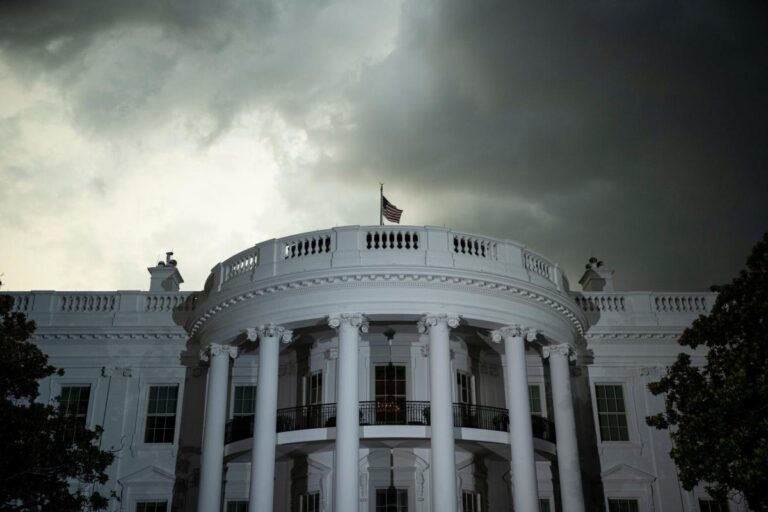(Bloomberg) — OpenAI CEO Sam Altman and Nvidia Corp. CEO Jensen Huang met with senior Biden administration officials and other industry leaders at the White House, where they discussed steps to address the massive infrastructure needs of artificial intelligence projects.
Bloomberg’s most read articles
On the tech side, attendees also included Anthropic CEO Dario Amodei, Google President Ruth Porat, Amazon.com Inc. cloud chief Matt Garman and Microsoft Corp. President Brad Smith, according to a White House statement released Thursday at the meeting. Government officials also included Commerce Secretary Gina Raimondo, national security adviser Jake Sullivan and Energy Secretary Jennifer Granholm.
Following the discussions, the White House announced the creation of an interagency task force to advance the development of data centers in the United States and initiatives to accelerate permitting for these facilities. These measures are aimed at ensuring that the United States maintains its leadership in the field of AI, where rapid advances in the industry require significant investments in data centers and energy supply.
The Department of Energy will also direct data center owners and operators to resources such as loans, grants and tax credits that can help them find clean, reliable energy sources, according to the White House statement. Energy industry participants included Exeleon CEO Calvin Butler.
OpenAI, for example, plans to spend tens of billions of dollars to build out a national AI infrastructure that spans data centers, power capacity and transmission, and semiconductor manufacturing — with investment from around the world. Company executives have been meeting with government officials for months to discuss a range of issues related to the initiative, including national security concerns that could be associated with foreign capital.
The talks came on the same day that OpenAI announced a new artificial intelligence model known internally as “Strawberry” that can perform some human-like reasoning tasks, a step that signaled the intensity of the competition.
“OpenAI believes that infrastructure is destiny and that building additional infrastructure in the United States is critical to the country’s industrial policy and economic future,” OpenAI said in a statement Thursday. The company highlighted the economic benefits of investing in U.S. data center projects, including the creation of 40,000 jobs in several states. OpenAI pointed to similar investments by China, which aims to become a global leader in AI by the end of the decade.
Porat said the strength of America’s energy infrastructure is critical to ensuring U.S. leadership in the emerging field of artificial intelligence. “Today’s meeting at the White House was an important opportunity to advance the work needed to modernize and expand the capacity of the U.S. energy grid,” she said in a statement.
Anthropic and Microsoft declined to comment.
The AI-powered boom in U.S. data center construction coincides with a broader surge in manufacturing spurred by the Chips and Science Act and the Inflation Reduction Act — flagship semiconductor and clean energy subsidies passed in 2022 under President Joe Biden.
Those investments, along with data center expansion and other factors, are expected to drive electricity demand up 15% to 20% over the next decade, according to the Energy Department. Data centers could consume as much as 9% of U.S. electricity generation annually by 2030, up from 4% of the total load in 2023, according to a report released in May by the nonprofit Electric Power Research Institute.
The Biden administration has said renewables such as wind and solar, along with battery storage and energy efficiency gains, are among the best ways to meet data centers’ growing energy demand because they are rapidly scalable and cost-competitive.
“Near-term growth in electricity demand driven by data centers presents an opportunity to accelerate the development of clean energy solutions, improve demand flexibility, and modernize the grid while maintaining affordability,” the Department of Energy said in a blog post last month.
However, the agency, which is due to release an assessment of data center energy consumption by the end of the year, warned that projections for electricity demand growth “continue to evolve due to the development of use cases” and other factors.
–With assistance from Courtney Rozen.
(Updated with White House statement and new OpenAI model, starting in second paragraph.)
Bloomberg Businessweek’s Most Read Articles
©2024 Bloomberg LP

